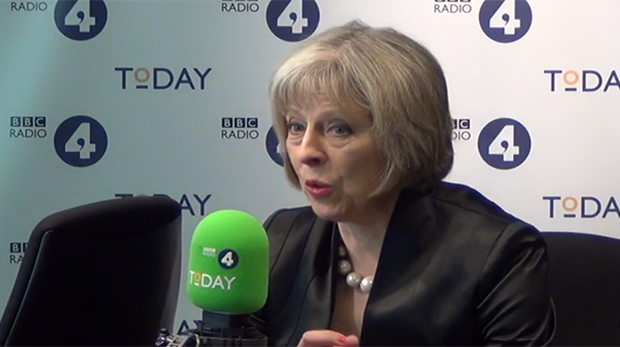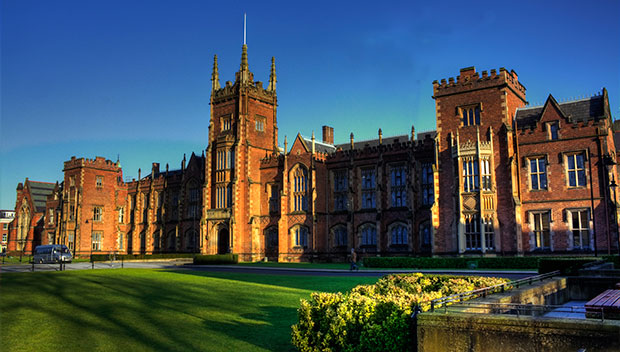Index relies entirely on the support of donors and readers to do its work.
Help us keep amplifying censored voices today.
Index on Censorship considers Tony Blair’s proposals on hate speech to be dangerous and divisive. Blair, who is to be appointed chair of the European Council on Tolerance and Reconciliation (ECTR) has defended plans to lower the the barriers on what constitutes incitement to violence and make Holocaust denial illegal.
“These suggestions — far from protecting people — are likely to have the opposite effect, driving extremist views underground where they can fester and grow,” said Jodie Ginsberg, CEO of Index on Censorship. “Instead, we should be protecting free expression, including speech that may be considered offensive or hateful, in order to expose and challenge those views.”
Individuals should always be protected from incitement to violence and that protection already exists in law, as do stringent laws on hate speech. Further legislation is not needed.

(Photo illustration: Shutterstock)
It’s hard not to feel sorry for Abu Haleema. The poor man can’t catch a break. All he wants to do is establish a global caliphate under the harshest possible interpretation of sharia — a caliphate in which, he hopes, he will play a significant role — and yet he is thwarted at every turn.
First the authorities stop him from travelling to Syria to join the Islamic State. And then, to add insult to injury, they take away his internet, like he’s a naughty teenager. It’s a hard knock life for Abu.
And it’s about to get even harder. In the Queen’s Speech, the government announced a new counter-extremism bill which, will essentially make the existences of Abu Haleema and people like him illegal, without actually making them illegal.
How does that work? To quote the BBC: “The legislation will also propose the introduction of banning orders for extremist organisations who use hate speech in public places, but whose activities fall short of proscription.”
This, in essence, is a thought ASBO, a convenient way of stamping out “extremism” without making any serious attempt to test that behaviour against any kind of proper harm principle.
Whether we like it or not, we do have laws on hate speech and incitement to violence in the United Kingdom. We also have the powers to proscribe terrorist organisations.
But these powers are apparently not enough: and so we must create semi-legal sub-strata of behaviour where people can be censored on the basis of us not liking what they say very much.
This is not some plea for accommodation of the views of Abu Haleema and his friends. Let us be very clear here: these are views which are entirely antithetical to the secular liberal democracy we aspire to be.
But that fact is exactly the test of a secular liberal democracy: if we are to imagine free speech as a defining value of democracy (as David Cameron has said he does) then we cannot just choose which free speech we will defend and which we will not (as David Cameron has said he wants to). As commentator Jamie Bartlett has pointed out, free speech is not something that one pledges allegiance to in the abstract while stifling in the practice.
Predictably, we now turn to the life and times of George Orwell for a lesson from history.
In early 1945, a small group of London anarchists found themselves facing prosecution for undermining the war effort — specifically the charge of “causing disaffection among the troops”. Their crime was to criticise basic training, and to suggest that Belgian resistance movements should not hand over weapons to their Allied liberators, but instead retain their arms and set about building workers’ militias which would form a revolutionary force in post-Nazi Europe.
For this, several of the group were jailed, the British authorities of the time not noticing the irony of fighting for freedom in Europe while jailing dissidents at home.
The failure of the state — and the civil liberties movement — to stand for the right to free speech led to the formation of the Freedom Defence Committee.
Most of the supporters of the Freedom Defence Committee, including Orwell, would have had some sympathy with the anarchist position (Orwell had hoped, in the early days of the war, that the training and arming of the Home Guard would lead to a socialist revolution after the Nazis had been defeated. Apart from that, at least one of the accused, Vernon Richards, was a friend of Orwell’s).
But Orwell and his comrades in the Freedom Defence Committee were alert to the fact that one cannot simply defend the freedom of one’s friends. One also had to stand for the rights of communists and even fascists to hold their views. (Before any reader attempts to refer me to Orwell’s supposedly infamous “list” of communists and fellow travellers, supplied to his friend Celia Kirwan at the government’s Information Research Department, let me point out that it was a list compiled as a favour for a friend, not a blacklist: no one on that list was ever arrested, and they pursued their careers and lives unhindered). This led to the FDC taking the position that those with unpopular views – even those who had been (and still were) on the other side in the war, should be given the same justice as everyone else – demanding, for example, proper rights in cases of dismissal from employment when such a concept barely existed for anyone.
Fascists, communists and Islamists aside, there is probably not a single political grouping in Britain today that does not lay some claim to Orwell’s legacy. But as with free speech arguments, all tend to support the side that supports their side: libertarians cling to the anti-surveillance overtones in his work, while ignoring the long-held demands for state intervention on some issues. Conservatives admire the anti-communism, while ignoring the horror at capitalism, tradition, and the class system. Socialists pretend that Nineteen Eighty-Four and Animal Farm were anything else apart from scathing attacks on left utopianism.
Orwell was a far from perfect figure, but he did get a lot of things right — the fundamental one being the consistent application of principles on issues of liberty.
It is fashionable to invoke Big Brother whenever governments introduce new surveillance measures, or suggest censorship of extremist views. It is also, generally, silly and hyperbolic. But when faced with an enemy entirely at odds with democracy, as we are with Islamist extremism, it’s worth noting that, as did Orwell and his comrades, it is possible to attack the ideology while standing firm on freedom.
An earlier version of this article stated that a group of London anarchists faced prosecution for suggesting the Belgian resistance movements should not hand over weapons to their German liberators. This has been corrected.
This column was posted on 28 May 2015 at indexoncensorship.org

Home Secretary Theresa May appeared on BBC Radio 4 Today programme. View the video. (Photo: BBC)
The UK Home Secretary’s preview of a proposed new counter-extremism bill raises the stakes for freedom of expression in the United Kingdom. Index on Censorship is disturbed by the potential impact on free speech embedded in the proposals.
“While the exact wording of the law remains to be seen, it is unclear why new legislation is needed. Current laws on incitement to violence and hatred can already be applied to extremist individuals or groups. New laws risk simply stifling a far broader range of speech”, Index on Censorship CEO Jodie Ginsberg said.
Under previous proposals put forward by Theresa May, extremists would have been banned from TV and stricter controls on what could be said on the internet would have been imposed.
May’s insistence that the proposed law would be applied to those seeking to undermine vaguely defined “British values” is a broad brush that could end up being applied to anyone who simply disagrees with the government. As Index said in October 2014, the proposals smack of the McCarthy witch-hunts of the 1950s in the United States.
According to May, the UK already has the world’s toughest anti-terrorism legislation. Adding to this body of laws is unnecessary. Index remains convinced that driving debate underground is not the answer in tackling extremism or terrorism.

Queen’s University Belfast cancelled a Charlie Hebdo-related event (Photo: Flickr/Creative Commons).
In my column in the latest issue of Index magazine, re-published below, I explored the shrinking space for free expression on university campuses. It’s getting worse. Earlier this week, we learned Queen’s University in Belfast had cancelled a conference on the fallout from the Charlie Hebdo attack, citing security fears. That followed a decision by the University of Southampton to axe a conference on Israel after pressure from the Zionist Federation UK. Another group is now pressurising respected medical journal The Lancet over its coverage of Palestine.
Index condemns these attempts to stifle free and open debate. It is clear that academic freedom is under threat from special interest groups who believe that no one should be exposed to ideas that they find personally offensive. The result is that the universe of ideas and opinions is shrivelling. We need to push back, and universities, students, academics and academic publications must resist this pressure.
Something is going wrong at universities. Institutions that should be crucibles for new thinking, at the forefront of challenges to established thought and practice, are instead actively shutting down debate, and shying away from intellectual confrontation.
Driven by the notion that students should not be exposed to ideas they find – or might find – offensive or troubling, student groups and authorities are increasingly squeezing out free speech – by banning controversial speakers, denying individuals or groups platforms to speak, and eliminating the possibility of “accidental” exposure to new ideas through devices such as trigger warnings.
The trend was particularly noticeable last year when a number of invited speakers withdrew from university engagements – or had their invitations rescinded – following protests from students and faculty members. Former US Secretary of State Condoleezza Rice withdrew from a planned address at Rutgers University in New Jersey after opposition from those who cited her involvement in the Iraq war and the Bush administration’s torture of terrorism suspects; Brandeis University in Massachusetts cancelled plans to award an honorary degree to Islam critic Ayaan Hirsi Ali; and Christine Lagarde backed out of a speech at Smith College following objections by students over the acts of the International Monetary Fund, which Lagarde runs. In the UK, the University of East London banned an Islamic preacher for his views on homosexuality. And a new law – a counter-terrorism bill – was proposed in Britain that could be used to force universities to ban speakers considered “extremist”.
Registering your objection to something or someone is one thing. Indeed, the ability to do that is fundamental to free expression. Actively seeking to prevent that person from speaking or being heard is quite another. It is a trend increasingly visible in social media – and its appearance within universities is deeply troubling.
It is seen not just in the way invited speakers are treated, but it stretches to the academic fraternity itself. Last year, the University of Illinois at Urbana-Champaign withdrew a job offer to academic Steven Salaita following critical posts he made on Twitter about Israel.
In an open letter, Phyllis Wise, University of Illinois at Urbana-Champaign chancellor, in an open letter, wrote: “A pre-eminent university must always be a home for difficult discussions and for the teaching of diverse ideas… What we cannot and will not tolerate at the University of Illinois are personal and disrespectful words or actions that demean and abuse either viewpoints themselves or those who express them. We have a particular duty to our students to ensure that they live in a community of scholarship that challenges their assumptions about the world but that also respects their rights as individuals.”
These incidents matter because, as education lecturer Joanna Williams wrote in The Telegraph newspaper: “If academic freedom is to be in anyway meaningful it must be about far more than the liberty to be surrounded by an inoffensive and bland consensus. Suppressing rather than confronting controversial arguments prevents criticality and the advance of knowledge, surely the antithesis of what a university should be about?”
Yet, increasingly, universities seem to want to shut down controversy, sheltering behind the dangerous notion that protecting people from anything but the blandest and least contentious ideas is the means to keep them “safe”, rather than encouraging students to have a wide base of knowledge. In the US, some universities are considering advising students that they don’t have to read material they may find upsetting, and if they don’t their course mark would not suffer, according to the Los Angeles Times.
In the UK, increasing intolerance for free expression is manifest in the “no platform” movement – which no longer targets speakers or groups that incite violence against others, but a whole host of individuals and organisations that other groups simply find distasteful, or in some way disqualified from speaking on other grounds.
The decision to cancel an abortion debate at Oxford in late 2014, which would have been held between two men – and noted free speech advocates – came after a slew of objections, including a statement from the students’ union that decried the organisers for having the temerity to invite people without uteruses to discuss the issue.
Encountering views that make us feel uncomfortable, that challenge our worldview are fundamental to a free society. Universities are places where that encounter should be encouraged and celebrated. They should not be places where ideas are wrapped in cotton wool, where academic freedom comes to mean having a single kind of approved thinking, or where only certain “approved” individuals are allowed to speak on a given topic.
Index on Censorship knows well the importance of the scholar in freedom of expression. Though we have come to be known as Index, the charity itself is officially called Writers and Scholars International, an effort to capture as simply as possible the individuals whom we intended to support from the outset. The title was never intended to be exclusive, but the inclusion of “scholar” signals the importance our founders attached to the role of the academic as a defender and promoter of free speech. In 2015, as we watch the spaces for free expression narrow, we will work doubly hard to ensure that university remains an arena for the clash of ideas, not the closure of minds.
This article is part of Across the wires, the spring 2015 issue of Index on Censorship magazine and was first published in early March. Follow the magazine on @Index_magazine. To read other articles from the issue, subscribe to Index magazine online here, also available on your iPhone, iPad or Android devices. For more subscription options, visit our subscribe page.